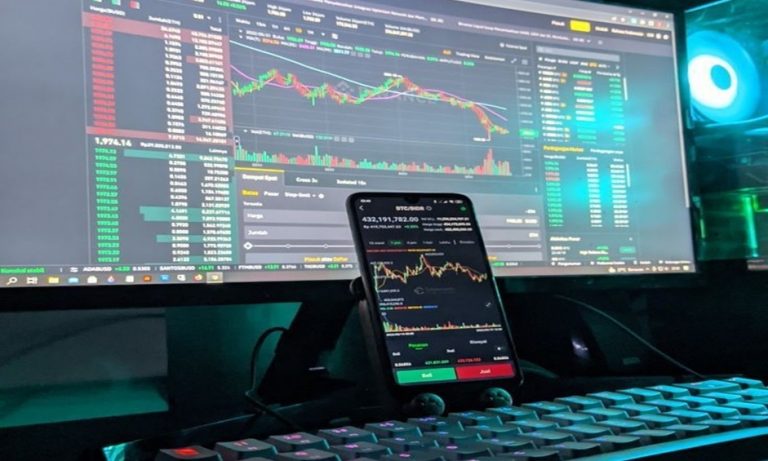
In the dynamic world of cryptocurrency, Bitcoin trading often reflects the market’s reaction to various economic indicators, including rate expectations. Traders and investors closely monitor central bank announcements and economic forecasts to gauge potential shifts in monetary policy, which can significantly impact Bitcoin’s value.
Inflation is a key economic factor that can significantly influence Bitcoin trading. It refers to the rate at which the general level of prices for goods and services is rising, and subsequently, purchasing power is falling. Central banks attempt to limit inflation, and avoid deflation, in order to keep the economy running smoothly.
For Bitcoin, which is often touted as ‘digital gold’, inflation can be a double-edged sword. On one hand, as inflation rises, traditional fiat currencies may lose value, making Bitcoin more attractive as it is not subject to the same devaluation; its supply is capped at 21 million coins. This scarcity mimics the properties of gold and can make Bitcoin a more appealing store of value during times of high inflation.
Register for Tekedia Mini-MBA edition 19 (Feb 9 – May 2, 2026): big discounts for early bird.
Tekedia AI in Business Masterclass opens registrations.
Join Tekedia Capital Syndicate and co-invest in great global startups.
Register for Tekedia AI Lab: From Technical Design to Deployment (begins Nov 15th).
Understanding Rate Expectations
Rate expectations refer to the anticipated interest rate changes by central banks, such as the Federal Reserve in the United States or the European Central Bank. These expectations are formed based on economic data, inflation rates, employment figures, and other macroeconomic factors.
Bitcoin, although decentralized and not directly linked to any single economy’s monetary policy, is not immune to the effects of rate expectations. When traders anticipate a rate hike, they may shift their investments from riskier assets like Bitcoin to more traditional and stable ones. Conversely, if rate cuts are expected, Bitcoin may see an influx of investment as traders seek higher returns.
Strategies for Trading Bitcoin on Rate Expectations
- Stay Informed: Keep up to date with central bank announcements and economic news.
- Analyze Trends: Use technical analysis to identify how Bitcoin’s price has historically reacted to changes in rate expectations.
- Diversify: Spread your investments across different asset classes to mitigate risk.
- Risk Management: Set stop-loss orders to protect your capital against sudden market movements.
While Bitcoin operates independently of central banks, its trading is still influenced by global economic factors, including rate expectations. This decentralized digital currency thrives on the autonomy it provides to its users. However, it’s not immune to the ebb and flow of the broader economic environment. Factors such as interest rate expectations, inflation rates, and economic growth indicators can all have a significant impact on Bitcoin’s value.
Interest rate expectations, for instance, can affect investor appetite for riskier assets like cryptocurrencies. When rates are expected to rise, traditional investments like bonds may become more attractive, potentially leading to a decrease in Bitcoin investment. Conversely, if rates are expected to fall, Bitcoin may see an uptick in demand as investors seek higher returns.
Inflation rates also play a crucial role. As a hedge against inflation, Bitcoin can become more appealing when inflation is high or expected to increase. This is because, unlike fiat currencies that can be printed at will by governments, Bitcoin has a capped supply, which theoretically makes it less susceptible to devaluation through inflation.
Economic growth indicators such as GDP growth can influence investor sentiment as well. Strong economic growth may lead to increased investor confidence and a willingness to invest in riskier assets like Bitcoin.
Understanding these economic factors is crucial for anyone involved in Bitcoin trading. While the cryptocurrency’s decentralized nature offers some protection from localized economic shifts, it’s clear that global economic trends still hold sway over its market movements.



